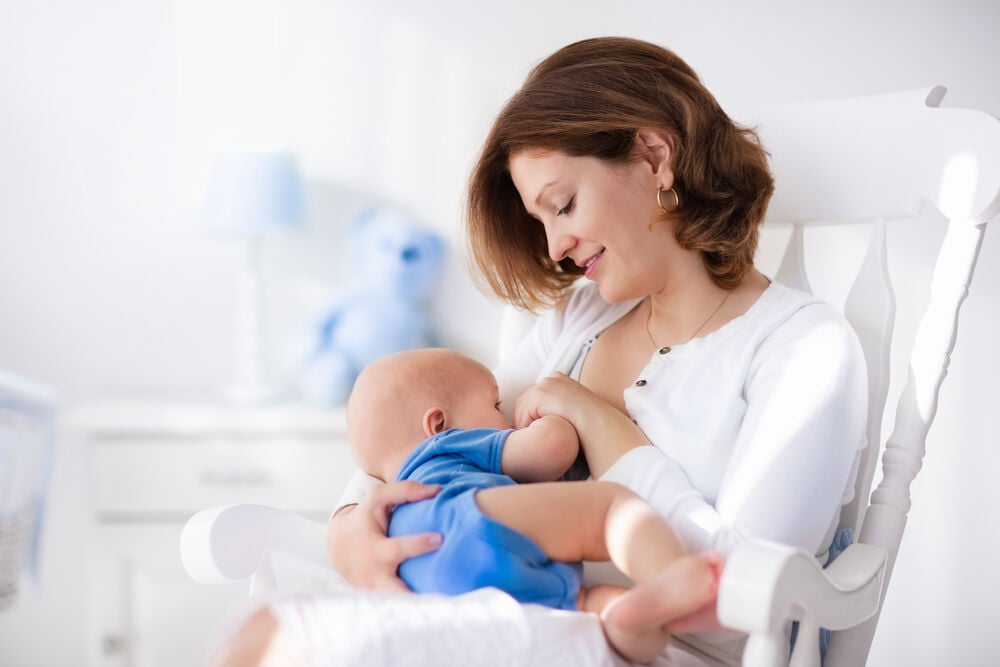It may seem weird or even funny to some people when a baby touches their genitals. But it is completely natural for babies to explore their bodies, including their genitals.
-
Tracking cycle
-
Getting pregnant
-
Pregnancy
-
Help Center
-
Flo for Partners
-
Anonymous Mode
-
Flo app reviews
-
Flo Premium New
-
Secret Chats New
-
Symptom Checker New
-
Your cycle
-
Health 360°
-
Getting pregnant
-
Pregnancy
-
Being a mom
-
LGBTQ+
-
Quizzes
-
Ovulation calculator
-
hCG calculator
-
Pregnancy test calculator
-
Menstrual cycle calculator
-
Period calculator
-
Implantation calculator
-
Pregnancy weeks to months calculator
-
Pregnancy due date calculator
-
IVF and FET due date calculator
-
Due date calculator by ultrasound
-
Medical Affairs
-
Science & Research
-
Pass It On Project New
-
Privacy Portal
-
Press Center
-
Flo Accuracy
-
Careers
-
Contact Us
Is It Normal for Babies to Touch Their Genitals?

Every piece of content at Flo Health adheres to the highest editorial standards for language, style, and medical accuracy. To learn what we do to deliver the best health and lifestyle insights to you, check out our content review principles.
New parents often wonder if this is typical behavior. In fact, it’s incredibly normal. They’re exploring their body in the same way they learn about their noses, toes, ears, and fingers.
Touching their bodies, including their genitals, can occur in different phases as children grow. There is no reason to scold or embarrass your child if they touch their genitals.
Should you do something when your baby is touching themselves?
When children touch their genitals, parents don’t know whether to address the behavior or ignore it.
If you discourage your child from touching their genitals by removing their hands yet encourage them to discover and play with their fingers or toes, you’re sending a confusing message.
Unlike adults, infants and toddlers aren’t yet aware of the sexual nature of genitals. They are simply discovering and exploring their world — including their bodies.
Studies have shown that genital touching is common in early childhood. Sometimes kids are so interested in their bodies that they want to show off different body parts. As a parent, how you react to this curiosity will affect how your child views their body and sexuality.
If you strongly disapprove of your child showing off an interesting body area, they may feel the need to be secretive. They may even feel ashamed of their body. But if you exercise tolerance and understanding of your child’s emerging sexual awareness, you can teach your child to respect their body and take pride in it.
Are baby erections healthy?
Baby erections are totally normal. For example, male infants can get erections when breastfeeding or during bath time or a diaper change. Infant girls also have clitoral erections, but their erections aren’t really noticeable.

An infant’s mind and body cannot distinguish a sexual function from a nonsexual one. When you are breastfeeding your baby, the pleasure your child derives from this activity can affect their whole body, including their genitals.
However, the pleasure your baby derives from breastfeeding has nothing to do with sexual pleasure or orgasm. It simply reflects their feelings of comfort. Activities like baths or breastfeeding can soothe the baby, reduce tension, and provide a distraction.
However, parents play a key role in teaching young children about their genitals. Studies have shown that a lack of sexual education, unresolved sexual curiosity, and ignorance around sexual issues can be harmful.
Children who learn about their sexuality from respectful parents or age-appropriate education programs are more open-minded about their bodies than children who don’t know about sexuality. In fact, teaching children about sexuality at an early age can lead to self-acceptance, promote a positive self-image, and even protect against sexual exploitation.
Sexuality plays an important role in the way we behave and relate to other people. When we understand our sexuality and that of other people, we can have more fulfilling, respectful relationships.
Some child development experts suggest that ignoring the subject of sexuality as a parent can create sexual problems for children as they grow into adulthood. It’s not healthy for your child to learn about sexuality without supervision and from unreliable sources. Misinformation from poor sources can lead to irresponsible sexual behavior.
In some cases, a child’s sexual behaviors can signal a problem. Reach out to a medical or psychiatric professional right away if you notice a certain genital behavior:
- Occurs frequently and cannot be redirected
- Causes emotional or physical pain or injury to the child or others
- Is associated with physical aggression
- Involves coercion or force
- Simulates adult sexual acts
In short, sexuality is part of our culture, and genital exploration is a normal part of child development. As your child gets older and starts to learn more about their body and the sexual nature of their genitals, you can begin to explain appropriate and healthy sexual behavior. Having open communication with your child about sexuality can build trust and encourage responsible sexual behavior later in life.
Take a quiz
Find out what you can do with our Health Assistant


Hey, I'm Anique
I started using Flo app to track my period and ovulation because we wanted to have a baby.


The Flo app helped me learn about my body and spot ovulation signs during our conception journey.


I vividly
remember the day
that we switched
Flo into
Pregnancy Mode — it was
such a special
moment.
Real stories, real results
Learn how the Flo app became an amazing cheerleader for us on our conception journey.




